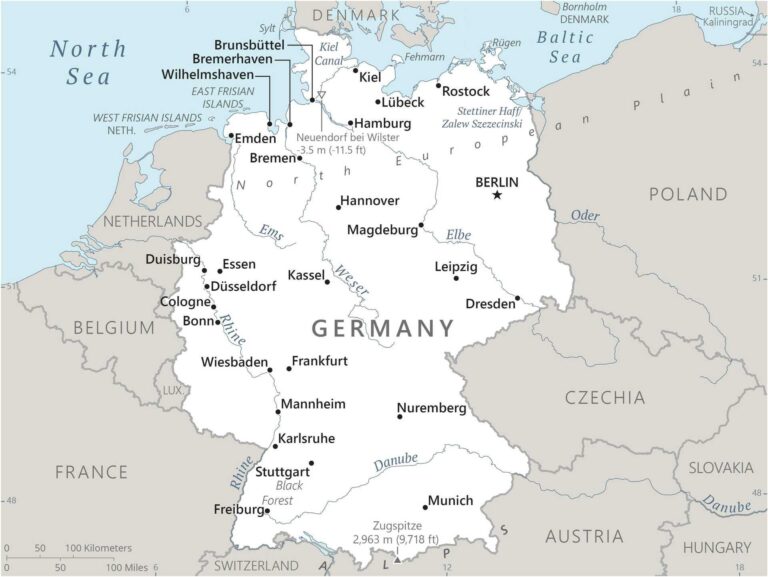Germany’s Path to 2030 Climate Objectives: Current Successes and Future Challenges
As germany advances towards its ambitious climate targets for 2030, experts are raising alarms regarding the sustainability of these efforts in the long run.Recent evaluations indicate that while the nation is on track to fulfill its immediate emissions reduction goals, insufficient strategies and investments coudl threaten future climate commitments. This situation places Germany at a pivotal moment in its energy transition, eliciting concerns from policymakers, environmental advocates, and industry leaders alike. With global attention increasingly directed toward climate initiatives, decisions made now will not only influence Germany’s ecological impact but also serve as a model for other countries striving to harmonize economic progress with environmental stewardship.
Germany’s Journey Towards 2030 Climate Objectives Faces Uncertainty
Germany has achieved significant progress in its quest to meet its 2030 climate objectives. Recent analyses reveal that the country is poised to reach its emissions reduction targets largely due to considerable investments in renewable energy sources and a gradual phase-out of coal reliance.The following factors have been instrumental in this advancement:
- Expansion of Renewable Energy Capacity: The growth of wind and solar power projects has substantially bolstered national electricity production.
- Rise in Electric Vehicle Usage: Initiatives promoting electric transportation have resulted in increased consumer adoption rates, contributing to lower transportation-related emissions.
- Improvements in Energy Efficiency: various programs across sectors have been launched aimed at optimizing energy use and minimizing waste.
However, concerns about what lies beyond 2030 are mounting as government advisors caution against potential obstacles that could hinder future climate ambitions. These challenges include:
- Political Volatility: Changes within leadership or policy frameworks may disrupt ongoing climate initiatives.
- Economic Limitations: Economic downturns could restrict funding available for renewable projects and related programs.
- Civic Opposition: Rising energy costs may lead citizens to resist necessary measures aimed at combating climate change.
| Crisis | Description |
|---|---|
| Political Volatility | The risk of shifting governmental priorities impacting existing climate policies. |
Expert Analysis on Barriers to Sustainable Energy Transition
The pursuit of Germany’s 2030 climate goals faces several critical barriers according to expert assessments that could derail sustainable energy aspirations moving forward. Among these significant challenges are:
- Lack of Policy Consistency:The unpredictability surrounding political commitments threatens long-term investment into renewable technologies.
- infrastructure Limitations: Current energy grids struggle with accommodating an increasing share of renewables effectively.
- Public Opposition: Local resistance against renewable projects can delay essential developments while incurring extra costs.
Additionally, dependence on conventional energy sources remains a formidable challenge; concerns over energy security compel policymakers towards maintaining fossil fuel usage amidst volatility associated with renewables.Experts stress the importance of:
- Increased Funding: Substantial financial resources are needed for infrastructure modernization facilitating an effective transition.
- Community Involvement: Engaging local populations in decision-making processes can alleviate opposition while fostering support.
- Technological Advancements: Innovations related to storage solutions and efficiency improvements are vital for establishing a dependable renewable grid.
Strategies for Reinforcing Climate Goals Amidst Obstacles
A recent review by government advisors indicates that although Germany is positioned well regarding its 2030 objectives, continued progress hinges upon strategic enhancements tailored towards overcoming existing hurdles. To strengthen these efforts amid various challenges ahead, it is crucial for policymakers’ focus areas include :
- Boosting Investment into Renewables:/ Prioritize financing solar & wind initiatives accelerating fossil fuel displacement .
- Modernizing Infrastructure:/ Revamp current transport & power systems enhancing efficiency reducing carbon footprints.
- Tightening Regulations:
Enforce stricter carbon emission standards ensuring accountability .
- Community Engagement Initiatives:
Promote awareness encouraging grassroots backing behind eco-pleasant actions .
Together with these recommendations , collaboration across diverse sectors will be essential achieving lasting sustainability outcomes . Consider collaborative opportunities such as :
<thead
<trSectors Pursuable Collaborations <tbody
<tr
<tdGovernment
<tdJoint ventures alongside private enterprises innovating solutions.<tr
<tdAcademic
<tdCollaborative research endeavors focusing sustainable practices.<tr
<tdNon-profits
<tdMobilizing community assets advocating awareness around climatic issues.Conclusion
While current trends suggest promising prospects toward fulfilling Germany’s 2030 environmental objectives ,experts caution about substantial obstacles looming ahead . Insights from governmental advisors underscore critical domains where forthcoming targets might be compromised unless prompt comprehensive actions materialize soon enough . as urgency surrounding climatic changes escalates , how adeptly German authorities adapt policies maintain momentum will prove pivotal not just locally but also shaping broader European global responses tackling this pressing dilemma head-on .The upcoming years stand crucial determining whether or not Germany successfully navigates complexities emerging emerges leading forefront international action addressing urgent need combatting adverse effects caused by changing climates worldwide.




